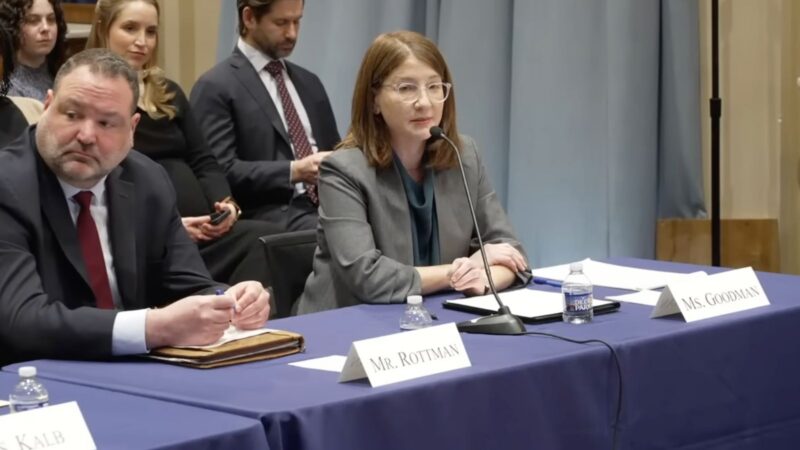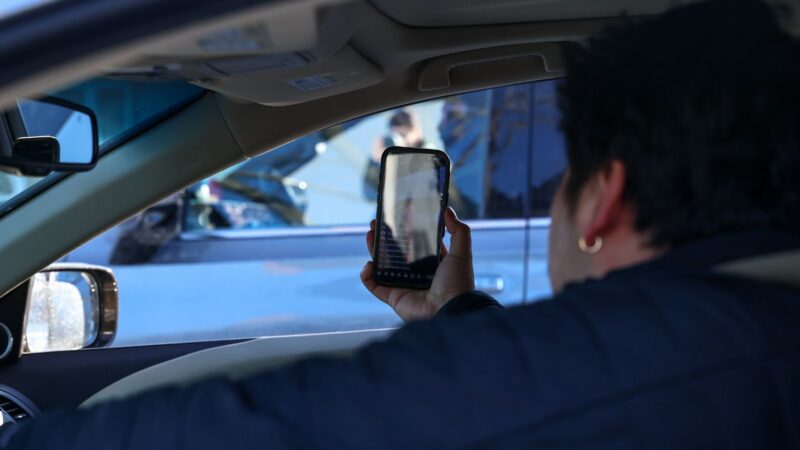Blake Jelley devises communications and advocacy strategies to counter the autocratic threat and advance reforms that strengthen democratic institutions at both the federal and state levels.
Thousands of Virginians who have lost their voting rights could regain them through class action lawsuit
- July 21, 2025
The ACLU of Virginia, Protect Democracy, and WilmerHale filed new motions in federal court on Friday in a first-of-its-kind lawsuit that could potentially impact thousands of disenfranchised Virginians. The suit challenges the Virginia constitution’s felony disenfranchisement provision under a 150-year-old federal law, the Virginia Readmission Act, that established the terms of Virginia’s readmission to the U.S. Congress after the Civil War.
“Some of the most pernicious attempts to suppress the voting rights of Black citizens trace back to the Civil War, but they have consequences that persist to this day,” said ACLU of Virginia Senior Supervising Attorney Vishal Agraharkar. “Today, Virginia is one of only three states whose constitutions permanently disenfranchise all people with felony convictions unless the governor restores their right to vote – which not only deprives Virginians of their voting rights, but breaks federal law.”
The first motion filed Friday is for summary judgment, asking the court to declare that Virginia’s enforcement of the felony disenfranchisement provision violates the Readmission Act, and to prevent the Commonwealth from disenfranchising Virginians except for those with convictions for an offense that would have been a common law felony in 1870.
“In Virginia today, we disenfranchise people for things like drug offenses, but those were not felonies at common law in 1870 – which are the only felonies for which the Virginia Readmission Act allows disenfranchisement,” said WilmerHale Partner Brittany Amadi. “By disenfranchising all people with felony convictions, Virginia is breaking federal law and disproportionately excluding Black and brown people from the ballot box.”
After the Civil War, former Confederate states like Virginia were determined to keep newly freed Black people from voting, so they expanded felony laws to criminalize behaviors disproportionately affecting Black communities. Then they used those convictions to systematically strip people of their right to vote.
Congress responded by using the Virginia Readmission Act to prohibit Virginia from depriving its citizens of the right to vote, except as a punishment for a very narrow set of felonies. But just a few years later, Virginia violated the Virginia Readmission Act, and amended its constitution to disenfranchise people convicted of a far broader set of crimes.
“I lost my right to vote because I was convicted of charges related to drug possession,” said Plaintiff Toni Heath Johnson, a 62-year-old resident of southwest Virginia. “But I already served my sentence. Being barred from voting prevents me from having a voice in decisions that better my life, my family’s lives, and my community, and amounts to a second sentence.”
The second motion seeks to certify the lawsuit as a class action, which could potentially impact a significant number of the more than 300,000 Virginians that Virginia admits are currently disenfranchised as a result of a felony conviction.
“There are a lot of Black men like me who have had their voting rights taken away. That means I have no voice in what’s happening in my community or my state,” said Plaintiff Tati Abu King, a 54-year-old resident of Alexandria, Virginia. “What am I supposed to tell my stepchildren who learn at school that democracy means everybody has a voice?”
Nationally, one in 22 eligible Black voters is disenfranchised, according to the Sentencing Project, a rate more than triple the rate of other voters. But in Virginia, one in eight eligible Black voters is barred from voting. In 2020 alone, Virginia disenfranchised 190,605 Black citizens for a felony conviction – the second-highest of any state.
“Because Virginia currently disenfranchises people convicted of all felonies, it directly violates federal law,” said Protect Democracy Counsel Jared Davidson. “Virginians’ government has illegally disenfranchised people for more than 100 years. But this lawsuit proves that it’s never too late to right a wrong.”
The suit was originally filed in June 2023 in the U.S. District Court for the Eastern District of Virginia, and a trial is currently scheduled for October 23, 2025, just weeks before Virginians will go to the polls on November 4, 2025.
Related Content
Join Us.
Building a stronger, more resilient democracy is possible, but we can’t do it alone. Become part of the fight today.
Donate
Sign Up for Updates Sign Up for Updates
Explore Careers Explore Careers
How to Protect Democracy How to Protect Democracy


